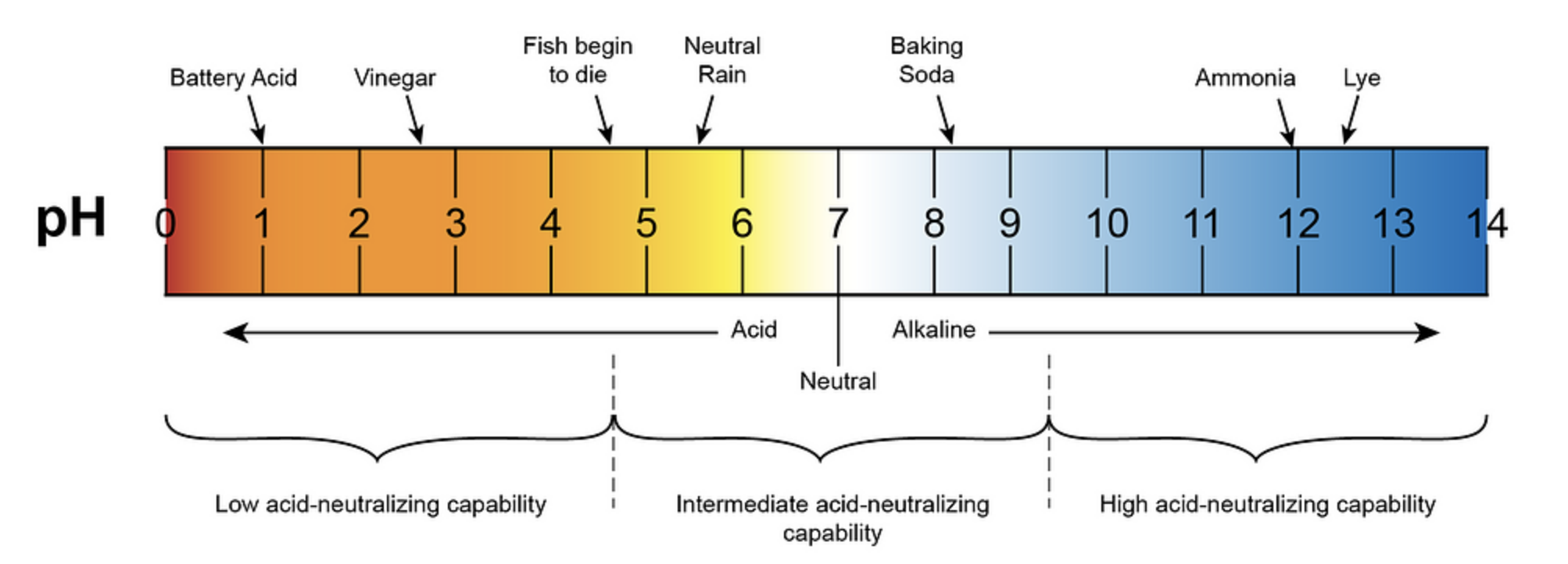The pH of a potassium nitrite (KNO2) solution is basic or alkaline, meaning it has a pH greater than 7. This is due to KNO2 being a salt of a strong base (KOH) and a weak acid (HNO2). When KNO2 dissolves in water, it breaks down into its ions, and the nitrite ion (NO2-) reacts with water to form hydroxide ions (OH-), raising the pH above 7.
Calculating the pH of a KNO2 Solution
To calculate the pH of a KNO2 solution, you can use the formula for the base dissociation constant (Kb) and the equation for the ionization of the nitrite ion in water. The Kb for the nitrite ion can be calculated from the acid dissociation constant (Ka) of nitrous acid (HNO2) using the formula Ka*Kb = Kw, where Kw is the ion product of water (1.0 x 10^-14 at 25°C). The Kb for the nitrite ion is 2.5 x 10^-11.
Here’s an example of how to determine the pH of a 0.35 M solution of KNO2:
- Set up an ICE table (Initial, Change, Equilibrium) to represent the reaction.
- Use the equation for Kb to calculate the concentration of OH- ions in the solution.
- Calculate the pOH using the formula pOH = -log[OH-].
- Calculate the pH using the formula pH = 14 – pOH.
Factors Affecting the pH of a KNO2 Solution
The pH of a KNO2 solution can be affected by the presence of contaminants or other substances that can alter the pH. For example:
- Acids or bases added to the solution can lower or raise the pH, respectively.
- The presence of other salts or ions can affect the pH by altering the ionic strength of the solution or by reacting with the nitrite ion or water.
Balancing the pH of a KNO2 Solution
To balance the pH of a KNO2 solution, you can add an acid or a base to neutralize the excess OH- ions or to provide additional H+ ions, respectively. The amount of acid or base needed can be calculated using the formula for the pH or the pOH, depending on whether you want to lower or raise the pH, respectively.
For example, to lower the pH of a 0.35 M KNO2 solution from 11.5 to 10.5, you would need to add approximately 0.0025 moles of a strong acid such as hydrochloric acid (HCl) per liter of solution.
Home Remedies for Adjusting the pH of a KNO2 Solution
If you want to use home remedies to adjust the pH of a KNO2 solution, you can use common household acids or bases such as:
- Lemon juice
- Vinegar
- Baking soda
- Milk of magnesia
However, you should be careful when using these remedies, as they can affect the purity and stability of the solution, and they may not provide accurate or consistent results.
Conclusion
In summary, the pH of a KNO2 solution is basic or alkaline, and it can be calculated using the formula for the base dissociation constant (Kb) and the equation for the ionization of the nitrite ion in water. The pH of a KNO2 solution can be affected by the presence of contaminants or other substances, and it can be balanced by adding an acid or a base to neutralize the excess OH- ions or to provide additional H+ ions, respectively. If you want to use home remedies to adjust the pH of a KNO2 solution, you should be careful and aware of their limitations.
References
- Brainly.com, Chemistry, High School: Final answer: The pH of a 0.1M KNO2 solution can be characterized as basic or alkaline.
- Chemistry Steps, KNO2 pH: Calculate the pH of a 0.35 M solution of KNO2 (Ka = 4.0 x 10-4).
- Homework.study.com, The pH of an aqueous solution of 0.122 M potassium nitrite, KNO2 …
- Homework.study.com, What is the pH of an aqueous solution of 0.224 M potassium nitrite, KNO2 …
- YouTube, Is KNO2 acidic, basic, or neutral (dissolved in water)? – YouTube
- The Student Room, pH of KNO3 in water? – The Student Room.

